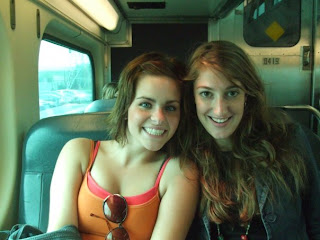My topic of research was “holography”. I had no problems finding them on either website. However, the two results came out to be different in several aspects.
In means of attribution, Wikipedia has a list of footnotes with names and sources. However, who is to say that information given in lectures is true? I have had a share of information handed to me by teachers that has been false. I do not think facts shared in lectures should be posted on a website for the entire world to see and learn from on the internet thinking it is automatically veritable. When entering the site’s history, it claimed that 8 users have donated to the presented information on the site since the beginning of November, but that does not include all of those who have added information without confirmation yet. There are also a total of over 30,150 users who have donated to the page. It is possible to contact the contributors, but in order to do so you must be a registered user. All that comes to my mind is that, it is naïve to think that all the facts relating to holography on Wikipedia’s website are factual with that many donations.
Britannica, from what I found, has no visible author on the website; the only citations I saw were the MLA and APA formats to cite the information using their website name. I could not find a way to contact anyone who provided the information either. But that may be a good thing. When looking up information in an encyclopedia, it is information that I trust. It is a published book of facts. I should not have to doubt its truth or extent of factuality. Though Britannica seems like a safer bet when researching material, I must admit that there is no bibliography for either site, at least not one at easy access.
On both sites it was easy to find the date that the sites were last updated, but I found that Wikipedia is updated everyday. In fact, while on the website, since the start of this assignment, 40 people have donated their own tid-bits of information in just a matter of minutes! I find it ridiculous! Britannica on the other hand was recently updated in November of 2007, yet it was edited by Encyclopedia Britannica Online – the actual website and not its users.
Both websites have numerous links on the types of holography, the process of holography, an overview, etc. They are all “clickable”. On Wikipedia, the links keep you on the same page but scrolls down to the linked info. On Britannica it brings you to a new page focusing solely on the link clicked on. I found no “dead” links on either site. Overall, the links seem just as safe as the websites do; which for Wikipedia is not necessarily saying much, but still true. Further readings on different websites which are sponsored by google are made available on Britannica, but Wikipedia seems to keep its users on only their site.
Wikipedia has too much information, making it confusing to understand and also more difficult to find specifics. Britannica likes to keep it simple: not too much information on a single page, but instead links to other areas of the topic being researched. Both websites do, however, cover the same key concepts even though Wikipedia made me feel a bit overwhelmed when examining the information with all the extra details. Britannica is stronger in terms of organization than Wikipedia is; much easier to follow.
Wikipedia gives an opportunity to its users to add information, but does not give its users a chance to argue the points that are stated on its website. How logical is that? One is allowed to post, or “donate”, whatever they like, and if enough users agree it becomes fact? However, if someone disagrees with these “donated” pieces of information they have no opportunity to argue it. It seems pretty immoral to me. If Wikipedia is going to continue on with providing these so called “facts” then they need to make sure that they are 100% correct before feeding its users inaccurate information.
Britannica seems more trust-worthy because of the fact that it does not just let anyone post anything they would like and considered it valid information. Wikipedia seems to be of little use. How can one pick out the lies from the facts in the all mess of the website? If I had to choose one over the other, I would pick Britannica in a heartbeat. Britannica has the organization and is a published encyclopedia. It is not edited by whoever wishes to fabricate or add pieces of information.





